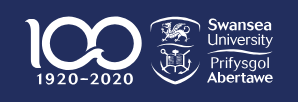About Healthcare Science (respiratory And Sleep Physiology), Bsc (hons) in Swansea University
Our BSc in Respiratory and Sleep Physiology will give you the expert training you need to begin a rewarding career working with doctors and other healthcare professionals to diagnose and treat people with respiratory disease and sleep-related breathing disorders.
Studying the structure and functions of the respiratory system, together with the latest diagnostic and therapeutic techniques, you will combine in-depth academic work with practical clinical and technological skills in a range of specialised healthcare settings.
Respiratory and Sleep Physiology is an exciting field that requires a high level of responsibility, accuracy, and problem-solving ability. As a respiratory and sleep physiologist, you will work with patients of all ages and disabilities, performing a wide range of diagnostic tests and developing treatment plans.
WHY RESPIRATORY AND SLEEP PHYSIOLOGY AT SWANSEA?
Our course is accredited by the National School of Healthcare and Science, the Registration Council for Clinical Physiology, and the Association for Respiratory Technology and Physiology.
Many of our academic staff are also practising healthcare scientists, providing an unrivalled combination of scientific rigour and professional expertise.
If you can commit to working in Wales for two years after graduating, you could get your tuition fees covered in full through the NHS Wales Bursary Scheme, as well as maintenance funding of up to £4,491 and a reduced rate loan from Student Finance.
Our excellent facilities in the College of Human and Health Sciences include a realistic clinical suite so you can put your theoretical knowledge into practice in an environment that reflects as closely as possible the actual conditions that you will experience when you go on placement.
You will also benefit from a real-life patient setting in our award winning Health and Wellbeing Academy, an on-site clinic that provides health and wellbeing services for the local community in collaboration with the NHS.
Half your course will be taught at our Singleton Park campus on the edge of the beautiful Gower Peninsula and the other half will take place in healthcare settings. We have very strong links with healthcare providers and Welsh health boards, opening up a wide range of clinical placement opportunities for you.
You will be joining a university that is in the UK top 10 for overall student satisfaction (NSS 2019) and the UK top 10 for graduate prospects (DLHE 2018).
For applicants whose first language is not English we require a minimum IELTS score of 6.0 (or equivalent).
Typically we recognise a 75% average in Standard XII .
This can be awarded by:
- Central Board of Secondary Education (CBSE)
- Council for the Indian School Certificate (CISCE)
- National Institute of Open Schooling (NIOS)
- Various state boards
- Autonomous schools
Actual grades required will vary depending on exam board.
Swansea University Highlights
| Type of learning |
On-campus |
| Type of degrees |
Bachelors, Masters |
| No. of campuses |
2 |
| Application Season |
Various intakes round the year |
| On-campus housing |
Available |
| Financial Aid |
Available as Scholarships and Awards |
| Work Study |
Available for international students |
Swansea University Average Tuition Fees And Other Expenses
An estimated budget for aspirants consisting of expenses like accommodation, travel and stay required to study in the UK is as compiled below. Note that an annual budget for undergraduates and graduates of the university is approximately 7500 GBP and 9500 GBP, respectively.
Swansea University Tuition Fee
The tuition fees vary from course to course for both graduate and undergraduate degrees. Fee for some of the course is:
- Social Work & Graduate Entry in Medicine (GEM): 9,000 GBP.
- Nursing, Midwifery, Paramedic Science and Healthcare courses: 9,000 GBP.
- Graduate Diploma in Law (GDL): 7950 GBP.
Swansea University Cost of living
Other expenses apart from the tuition fee are as mentioned below.
Private Residence Costs
| Expenditure |
Cost per week |
Cost per academic year (40 weeks) |
| Rent |
80.00 – 110.00 |
3200.00 – 4400.00 |
| Meals |
- |
2,000 to 3,000 |
| Contents Insurance |
2.75 |
110.00 |
| Broadband |
4.60 |
184.00 |
| Travel Costs |
9.00 |
360.00 |
Swansea University Course Costs
| Course Costs |
Costs per Week |
Cost per academic year (40 weeks) |
| Books |
8.36 |
334.40 |
| Printing and Binding |
1.10 |
44.00 |
| Course Equipment |
1.75 |
70.00 |
| Field Trips |
1.35 – 30.00 |
54.00 – 1200.00 |
